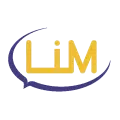What Is a Certified Translator?
A certified translator is a translation professional who has been officially recognized by a provincial or national association for their skills and accuracy. In Canada, certification comes from organizations such as the Association of Translators and Interpreters of Ontario (ATIO), the Society of Translators and Interpreters of British Columbia (STIBC), the Ordre des traducteurs, terminologues et interprètes agréés du Québec (OTTIAQ), or the Association of Translators and Interpreters of Alberta (ATIA).
Certified translators carry a stamp or seal to verify the authenticity of their work. Their official document translations are accepted by courts, universities, government offices, and immigration authorities across Canada.
When Do You Need a Certified Translator?
Certified language services are required in many situations:
-
Immigration applications often require translations of birth certificates, marriage licenses, police checks, and academic transcripts.
-
Legal translation is necessary for contracts, affidavits, judgments, and other official court-related documents.
-
Academic translator services are required by universities and colleges for transcripts, diplomas, and letters of reference.
-
Professional licensing bodies request certified translations of international degrees, certifications, and regulatory documents.
-
Businesses need certified translation for corporate registrations, trade agreements, and compliance paperwork.
Key Qualities of a Translation Professional
Accuracy
Certified translators ensure precise and culturally appropriate translations, not just word-for-word copies.
Confidentiality
Every trusted translator in Canada follows strict ethics and confidentiality standards to protect client information.
Specialization
Certified translators often specialize in legal translation, medical translation, technical, or academic fields.
Legal Recognition
Government institutions, regulators, and educational bodies accept and recognize the legal authority of a certified translator’s work.
What to Expect From a Certified Translator
When hiring a Canadian certified translator, you should receive:
-
A complete and accurate translation of your document
-
A signed statement of accuracy or affidavit
-
An official stamp, certification number, or association ID
-
Formatting consistent with the original document and official requirements
How to Verify a Canadian Certified Translator
Before choosing a translator, check that they are:
-
A member of a recognized provincial association such as ATIO, STIBC, OTTIAQ, or ATIA
-
Certified in the correct language pair (for example, Arabic to English)
-
In good standing with no disciplinary issues
These associations publish directories to help clients confirm credentials and certification status.
Certified Translation vs. Notarized Translation
There is a key difference between certified and notarized translation:
-
Certified translation is completed by a certified translator and includes a declaration of accuracy with a seal or stamp.
-
Notarized translation may be done by someone who is not certified but signed before a notary public.
For immigration and legal purposes in Canada, authorities usually require and more widely accept certified translation.
Common Language Combinations in Certified Language Services
Certified translators in Canada cover a wide range of languages, including:
-
English ↔ French
-
Spanish to English
-
Arabic to English
-
Mandarin to English
-
Russian to English
-
Portuguese to English
-
Farsi to English
-
Hindi to English
This makes certified language services accessible to diverse communities across Canada.
Where to Find a Trusted Translator in Canada
To find a certified translator, you can:
-
Search provincial association directories (ATIO, STIBC, OTTIAQ, ATIA)
-
Contact reputable interpreter and translation agencies like Languages in Motion
-
Request referrals from legal firms, healthcare providers, or immigration consultants
Tips for Working With a Certified Translator
-
Provide clear, legible copies of your original documents
-
Ask about turnaround times for urgent cases
-
Request a transparent quote, including rush or printing fees
-
Specify the purpose of the translation (legal, academic, immigration) to ensure correct terminology and formatting
Conclusion
A certified translator is more than just bilingual—they are a trusted translator Canada recognizes for accuracy, professionalism, and legal compliance. Whether for immigration, legal translation, education, or business, certified language services protect the integrity of your documents and prevent costly delays.
By choosing a Canadian certified translator through Languages in Motion, you ensure that your official document translation is accurate, confidential, and accepted by all required authorities.


